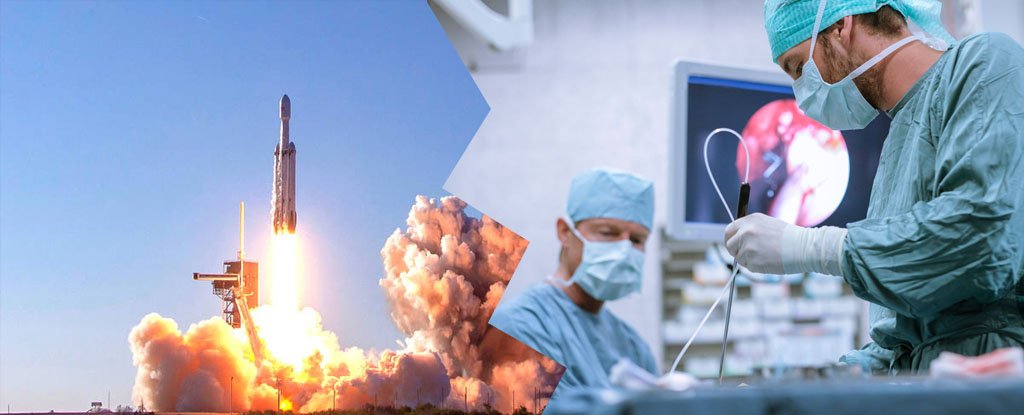
Have you ever wondered why we single out brain surgeons and rocket scientists as the crme de la crme of the human intelligence pool?
Who would win out in a battle of wits if we used the phrases 'It's not rocket science' and 'It's not brain surgery' interchangeably?
A team of neuroscientists tried to find out who deserved the crown in the Christmas issue of The BMJ.
The phrase "It's not rocket science" is thought to have originated in America in the 1950s when German rocket scientists were brought over to support the developing space program and design of military rockets.
The origin of 'It's not brain surgery' is not clear. It's tempting to think that the techniques of the polymath and neurosurgeon Harvey Cushing captured the attention of the public.
In their experiment, the researchers compared the cognitive test scores of 322 engineers and 72 neurosurgeons, and found that they had different skills in problem solving.
The results suggested that there were small differences between the two groups, but no one came through on top.
The researchers wrote that the neurosurgeons had higher scores than the engineers in semantic problem solving.
The researchers theorize that the results are due to the exposure to medical terminology derived from Greek and Latin.
"Aerospace engineers had higher scores in mental manipulation and attention, which suggests that these skills can increase with training," the researchers explain.
There was no difference in the scores for memory, spatial problem-solving, problem-solving speed, and memory recall speed.
The researchers found only minor differences in cognitive prowess when they compared the rest of us to brain surgeons and rocket scientists.
The neurosurgeons' problem-solving speed was quicker and their memory recall speed was slower when compared with the general population.
It seems like anyone can be a rocket-scientist-level genius if they follow the results of this tongue-in-cheek experiment.
"In situations that do not require rapid problem solving, it might be better to use 'It's not brain surgery', but in situations where rapid information recall is needed, this phrase should be avoided," the team concludes.
There are many ways to be smart, and it's important for both neurosurgeons and engineers to have a lot of learned knowledge to do their jobs well.
Maybe we're giving brain surgeons and rocket scientists too much credit.
"It is possible that both neurosurgeons and aerospace engineers are put on a pedestal and that they are not really interested in a career in that field," the researchers say.
Future work should aim to determine the most deserving group, as other professions might deserve to be on that pedestal.
The research was published in the Christmas edition of The BMJ.
